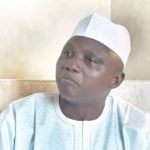Orientation:
Democracy requires quality participation and therefore orientation and knowledge on the part of the followers and leaders who man the democratization process. This has to be carefully planned and executed in order to deliver on its purpose. It must be deliberate and aimed towards directing the leader and the led in the direction of democratic tenets. The mindset of people towards any particular concept must be developed and activated, even before they assume positions of power or authority otherwise it may prove difficult to attempt to bend the iron when it is cold. People will readily adapt when they are yet to assume the position of power.
The orientation should be undertaken by political parties in the process of leadership recruitment. For instance, induction courses or orientation programmes should be organized for those who have won primary elections, to prepare them for the contest ahead, the need for issue-based campaigns and generally to focus on peace and credible electoral process. In the same vein, the government or INEC should organize retreats and seminars for those who have won elections prior to their assumption of office. This will help set a roadmap and offer them a compass for governance. It is not proper to put a greenhorn or some novice in sensitive positions and expect that he will learn on the job.
Equity:
Equity is important in the delivery of democracy. The Courts of law are central in the delivery of equity to ensure that there is fairness in the administration of justice. Beyond the courts however, we all can apply the doctrines of equity in our daily lives, especially those who have been entrusted with positions of authority, by embracing freedom from bias or favouritism and do what is right and just to all manner of people that come our way. In the family setting, in the allocation of resources, in the distribution of power and generally in the implementation of policies and programmes, we can embrace the principles of equity. Once there is justice, the moment we practice fairness in our dealings, then there is guarantee for peace, progress and development.
This is where the idea of rotation and zoning comes to play. Surely, our forefathers must have thought ahead of us, by inserting a clause in our Constitution which ensures that there is no concentration of power, wealth and resources in any particular group of people. If we cannot develop on the principle of federal character, we can at least retain and not bastardize it.
Effectiveness:
Democracy is attractive because it promises a better life for the people. It is important that the decisions and policies of the government are effective; otherwise, the government will lose its legitimacy. The current spate of insecurity, poverty and corruption in Nigeria’s public and private sectors makes it difficult to say that democracy has translated to a better life for the Nigerian people. Indeed, the seeming failure of leadership has led some elder statesmen to suggest a kind of interim arrangement that will usher in some kind of caretaker government which will develop a roadmap for Nigeria’s future. Many people have expressed the view that our own brand of democracy bears no value for the common populace.
Efficiency:
Elections are expensive to conduct but democracy retains a better appeal than other forms of government in terms of cost and efficiency. It is essential to the democratization process that public funds are managed and accounted for in order to achieve the greatest good for the greatest number of persons. A situation where the office of the Accountant-General of the Federation is found wanting in the management of scarce resources is saddening. The corruption that has permeated the present administration is heartbreaking, given the initial euphoria and empty boasts to fight corruption to a standstill.
A case for good governance in Nigeria
Professor Chinua Achebe, in his work, The Trouble with Nigeria (2005), published in the African Studies Review, stated as follows:
‘The trouble with Nigeria is simply and squarely a failure of leadership. There is nothing wrong with the Nigerian character. There is nothing wrong with the Nigerian land or climate or water or air or anything else. The Nigerian problem is the unwillingness or inability of its leaders to rise to the responsibility, to the challenge of personal example which are the hallmarks of true leadership.’
He further denied the claims that Nigeria is a great country and remarked as follows:
‘Nigeria is not a great country. It is one of the most disorderly nations in the world. It is one of the most corrupt, insensitive, inefficient places under the sun. It is one of the most expensive countries and one of those that give least value for money. It is dirty, callous, noisy, ostentatious, dishonest and vulgar. In short, it is one of the most unpleasant places on earth.’
Achebe’s lamentation probably explains why the June 12, 1993 elections was important as there was hope and wide jubilation that the elections would produce popular and credible leaders. Even though Nigeria is now in the doldrums of poverty and underdevelopment, we make bold to state that she can still enjoy the positive link between democracy and good governance as Nigeria has all it takes in terms of natural and human resources to do so. We pray that God will help us, so that like other nations, we will reap the dividends of democracy and enjoy development.
Recommendations
This discussion is not a book of lamentation and as such I shall attempt to make some recommendations towards the advancement of democracy, good governance and development in Nigeria. These include:
Strengthening the Electoral Process: There is an urgent need to tinker with the electoral laws and the Constitution to serve the interest of the public, not the deeply entrenched partisan interests of politicians. The present Electoral Act, 2022, has proved inefficient to tackle the common problems plaguing our leadership recruitment process.
Safeguards against Electoral Technology: There is an urgent need to ensure maximum safeguards when deploying electoral technology. At present, the majority of the educated Nigerian youth register online to be able to vote at the incoming elections but are unable to complete the process due to malfunctioning of the INEC website. There is an urgent need to ensure safeguards to ensure that Nigeria does not surrender its democracy to machines.
De-concentration of power in the executive branch of government: Over-concentration of power in the executive is an obstacle to good governance in Nigeria. The president and Governors conduct themselves more as emperors than as accountable elected representatives. Even if there is a direct election of the executive branch, it should not serve as a justification for sidelining a directly elected legislature. The masses should learn to exercise their power to recall non performing legislators so as to put them on their toes.
A bold and fearless judiciary: The Nigerian Judiciary must remain fearless and bold in holding the government accountable when it flouts the laws of the land. The Courts must assist the Nigerian people through innovative and inspiring judgments in the defence and advancement of the rule of law.
A vibrant bar, civil society and populace willing to hold the government accountable for acts which undermine and jeopardize democracy.
Urgent agenda for restructuring, either through a radical amendment of the present Constitution or enacting a new Constitution that will represent the interests, the yearnings and aspirations of our people.
Conclusion
In concluding this discourse, it is important to reiterate that democracy is attractive because it offers a better life for the people. On 6th June, 2018, the president of the Federal Republic of Nigeria declared June 12 as democracy day and memorialized Nigeria’s heroes who died in their struggle to enthrone democracy in Nigeria.
During the investiture ceremony and conferment of the posthumous award of Grand Commander of the Federal Republic (GCFR) on Chief MKO Abiola, the president on the 12th day of June, 2018, stated as follows:
‘What we are doing is celebrating and appreciating the positive side of June 12. June 12 which restates democracy and freedom. The June 12 that overcomes our various divides and the June 12 that produces unity and national cohesion. This is the June 12 that we are celebrating today and we will nurture it to our next generation.’
From the words of the President, it is safe to say that there is no democracy without freedom, unity, national cohesion or the rule of law. In fact, law is the midwife of democracy. Permit me to conclude with the admonitions of CHARLES E CLARK in his article titled ‘The function of Law in a Democratic Society’ published in the University of Chicago Law Review thus:
‘if the people are not in command of their own government, but are actually subordinate to some yet more remote sovereign who upholds and justifies unsanitary conditions, poor housing, long hours of labour, and general defiance of social welfare legislation as a freedom required by some vague constitutional command or higher law of nature, then, we are nearer either to anarchy or the rule of the autocratic few than we are to democracy.’
Rather than seeking to magnify our fault lines and divisive tendencies, democracy should be adopted as a tool for national integration and development. I thank you for your kind attention and may God bless you all.
YOU SHOULD NOT MISS THESE HEADLINES FROM NIGERIAN TRIBUNE
Woman’s Corpse, Unconscious Man Found Inside Office In Aba After Four Days
A woman was found dead and another man unconscious in an office located at No 7, Factory Road off Eziukwu Bus Stop, Aba, Abia State at the weekend.
Nurse Holds Doctor Hostage In OAU Teaching Hospital, Resident Doctors Plan Strike
Insecurity: ADC presidential candidate, Kachikwu, to give state of nation address Tuesday
The association of resident doctors (ARD) at the Obafemi Awolowo University Teaching Hospital (OAUTHC) Ile-Ife has concluded plans to go on strike over what they termed recurrent harassment of doctors at the hospital.
ALSO READ FROM NIGERIAN TRIBUNE
- Nurse Holds Doctor Hostage In OAU Teaching Hospital, Resident Doctors Plan Strike
- Woman’s Corpse, Unconscious Man Found Inside Office In Aba After Four Days
- Hoodlums Attack Lagos Governor’s Press Crew Bus In Tinubu’s Convoy, Two Injured
- [BREAKING] #EkitiDecides2022: INEC Declares APC’s Biodun Oyebanji Winner Of Guber Poll
- Top 10 Business Ideas In Nigeria You Can Start With 100,000 Naira
- 2023: Kwankwaso Will Not Be Deputy To Obi —NNPP
WATCH TOP VIDEOS FROM NIGERIAN TRIBUNE TV
- Relationship Hangout: Public vs Private Proposals – Which Truly Wins in Love?
- “No” Is a Complete Sentence: Why You Should Stop Feeling Guilty
- Relationship Hangout: Friendship Talk 2025 – How to Be a Good Friend & Big Questions on Friendship
- Police Overpower Armed Robbers in Ibadan After Fierce Struggle






